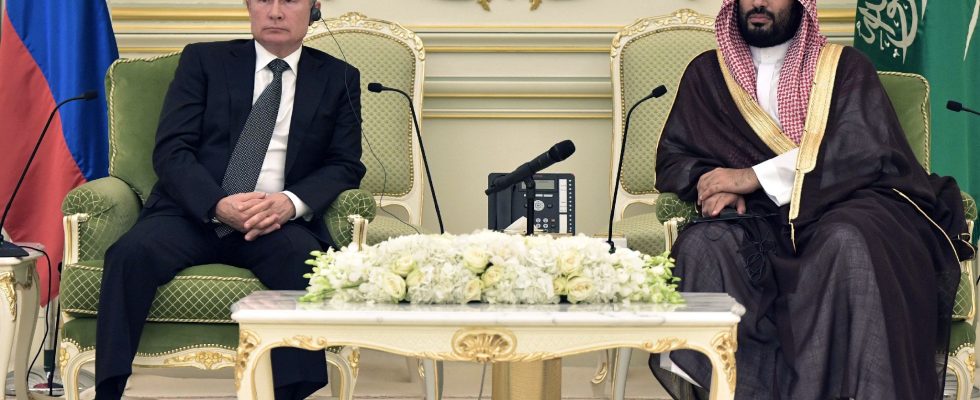Saudi Arabia is once again trying to impose itself as a mediator in the Ukrainian conflict. Thirty countries should meet on the shores of the Red Sea, this Saturday August 5 and Sunday August 6, following the invitation of Riyadh. The wealthy Gulf monarchy announced Friday evening the arrival of “security advisers from brotherly countries” to hold discussions for two days in Jeddah, around the “ten-point peace plan” proposed by Ukraine. If the list of participants has not been revealed, we know that Russia is not invited. Ukrainian President Volodymyr Zelensky hailed a “very important” meeting.
However, expectations remain limited in the face of this umpteenth peace initiative. Close to Moscow and maintaining good relations with kyiv, Saudi Arabia, the world’s largest exporter of crude oil, has already sought to position itself as a mediator in the war.
In May, the kingdom had already invited Ukrainian President Volodymyr Zelensky to an Arab League summit, who took the opportunity to accuse certain leaders of the region of turning a blind eye to the Russian invasion. Ukraine also criticizes Riyadh for playing Russia’s game by jointly conducting with it – the two countries are members of OPEC + – an oil policy aimed at circumventing Western sanctions against the invading country.
Opportunity to gain influence
Experts today doubt the ability of Saudi Arabia, whose political and economic weight are not sufficient, to really facilitate dialogue. Progress could, however, come from the participation of China, which did not take part in previous discussions, but which is one of the only countries to be able to influence Russia. For now, Beijing has announced that it will be represented by its envoy to Ukraine. According to diplomatic sources AFP, Ryad is also particularly keen to receive several developing countries such as Brazil, India or South Africa, members of the BRICS (with Russia). Unlike the West, these countries did not side with Ukraine, although they did not support the Russian invasion launched in February 2022. India and South Africa have already indicated that they will participate.
For international observers, this initiative is part of a more general dynamic on the part of the intermediate powers, which have the possibility of gaining influence through this peace process by bringing a vision not aligned with the West. For the specialist Joost Hiltermann, responsible for the Middle East at the specialized NGO International Crisis Group, Ryad now wants “to see itself alongside India or Brazil, because it is only as a group that these powers averages can hope to have an impact”. This position of mediator could thus clearly help the recognition of the kingdom by the BRICS, which must also study the Saudi candidacy at their next summit, at the end of August.
Make forget the scandals of the past
After several years of erratic diplomacy under the leadership of Crown Prince Mohammed bin Salman, Saudi Arabia is now trying to establish its ambition for regional power by positioning itself as an international mediator. The kingdom has thus improved its relations with its own rivals, starting with Qatar, Turkey, and even this year Iran and Syria. After leading attempts at mediation between India and Pakistan recently, Ryad is also at work in talks on Sudan, the scene of a conflict since mid-April.
Saudi Arabia’s goal is also to “make people forget some of its past failures, such as its intervention in Yemen or the murder of Jamal Khashoggi”, explains Joost Hiltermann to AFP. The country’s image has indeed been tarnished by war crime accusations in Yemen, after Riyadh launched a military operation in the neighboring country in 2015 to support government forces fighting Houthi rebels, close to Iran. But it was the stupor caused by the 2018 killing of Saudi journalist Jamal Khashoggi by Saudi agents in Istanbul that plunged the once-low-key kingdom into its worst diplomatic crisis.
Lately, the country has been pursuing a balancing act. On the one hand, he supported UN Security Council resolutions denouncing the Russian invasion as well as Moscow’s declared annexation of territory in eastern Ukraine, and tried to facilitate the repatriation of Ukrainian children displaced by Russian forces. On the other hand, it gained political influence by limiting its oil exports, which caused prices to rise and therefore limited the weight of international sanctions on Russia. Thanks to these talks, the country once again keeps all diplomatic channels open.
